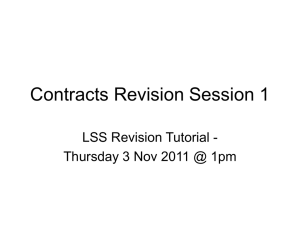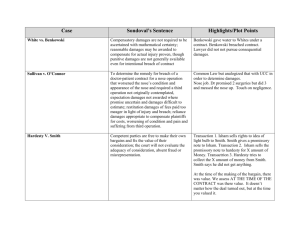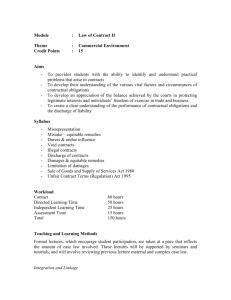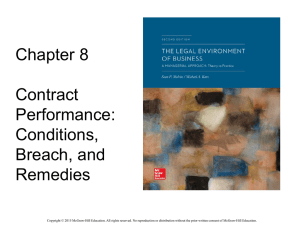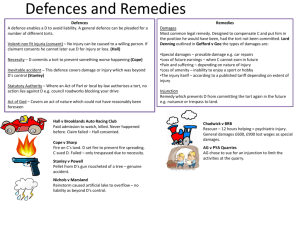Contract Essay Questions.
advertisement
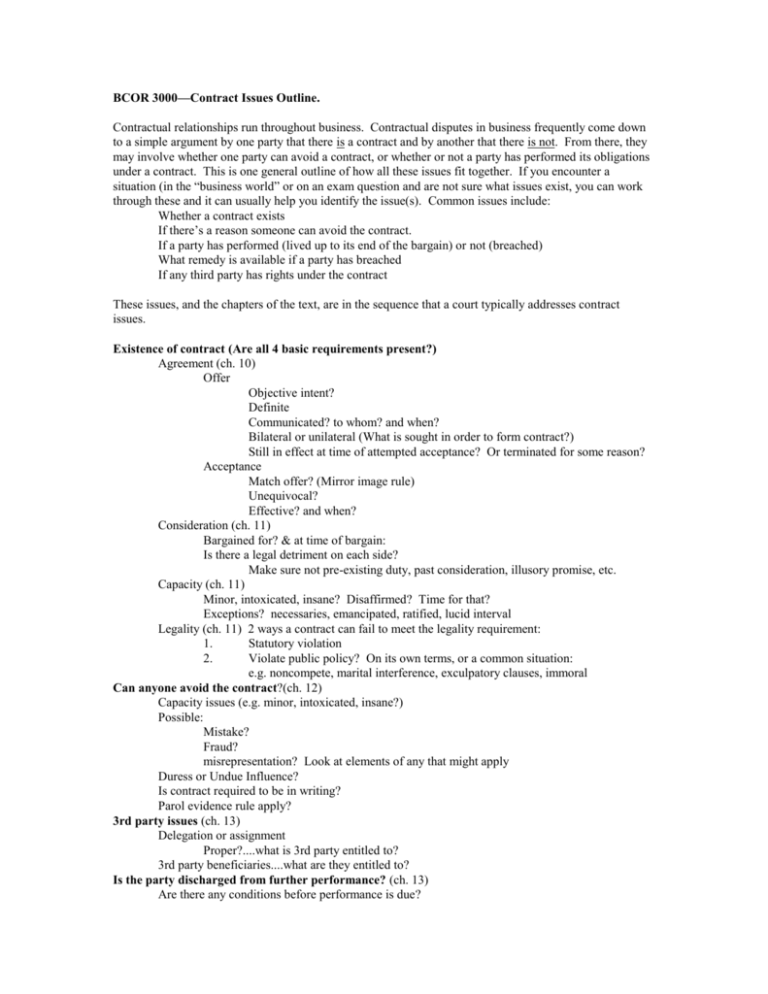
BCOR 3000—Contract Issues Outline. Contractual relationships run throughout business. Contractual disputes in business frequently come down to a simple argument by one party that there is a contract and by another that there is not. From there, they may involve whether one party can avoid a contract, or whether or not a party has performed its obligations under a contract. This is one general outline of how all these issues fit together. If you encounter a situation (in the “business world” or on an exam question and are not sure what issues exist, you can work through these and it can usually help you identify the issue(s). Common issues include: Whether a contract exists If there’s a reason someone can avoid the contract. If a party has performed (lived up to its end of the bargain) or not (breached) What remedy is available if a party has breached If any third party has rights under the contract These issues, and the chapters of the text, are in the sequence that a court typically addresses contract issues. Existence of contract (Are all 4 basic requirements present?) Agreement (ch. 10) Offer Objective intent? Definite Communicated? to whom? and when? Bilateral or unilateral (What is sought in order to form contract?) Still in effect at time of attempted acceptance? Or terminated for some reason? Acceptance Match offer? (Mirror image rule) Unequivocal? Effective? and when? Consideration (ch. 11) Bargained for? & at time of bargain: Is there a legal detriment on each side? Make sure not pre-existing duty, past consideration, illusory promise, etc. Capacity (ch. 11) Minor, intoxicated, insane? Disaffirmed? Time for that? Exceptions? necessaries, emancipated, ratified, lucid interval Legality (ch. 11) 2 ways a contract can fail to meet the legality requirement: 1. Statutory violation 2. Violate public policy? On its own terms, or a common situation: e.g. noncompete, marital interference, exculpatory clauses, immoral Can anyone avoid the contract?(ch. 12) Capacity issues (e.g. minor, intoxicated, insane?) Possible: Mistake? Fraud? misrepresentation? Look at elements of any that might apply Duress or Undue Influence? Is contract required to be in writing? Parol evidence rule apply? 3rd party issues (ch. 13) Delegation or assignment Proper?....what is 3rd party entitled to? 3rd party beneficiaries....what are they entitled to? Is the party discharged from further performance? (ch. 13) Are there any conditions before performance is due? Other conditions to discharge a party from its duties Commercial Impracticability or Frustration of Purpose? Has there been a breach? (ch. 14) Has each party done what was required? If a breach, what remedies are available to the nonbreaching party? (ch. 14) Damages or other remedies How are damages measured?...Benefit of the bargain or other in this case? Specific performance?, Liquidated damages, consequential damages Any issues with mitigation?


